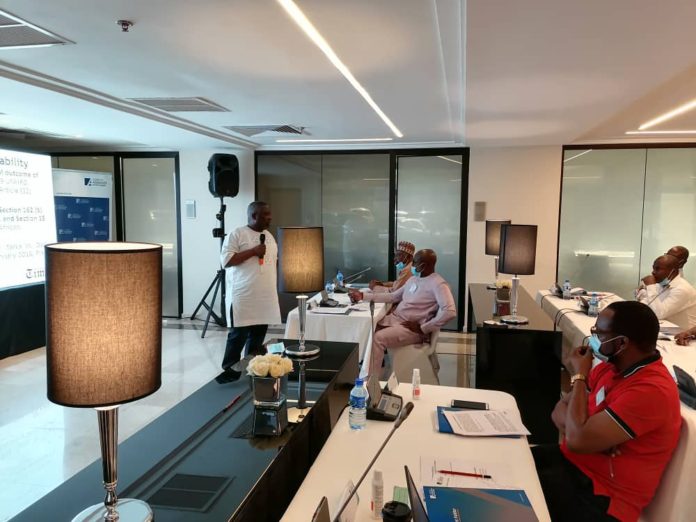By Our Correspondent
The Country Director, Amnesty International (AI), Osai Ojigho, has given five strategies to combat acts that tend to stifle the freedom of the press in the country.
Ojigho gave the hints in Abuja at a three-day training organised by Konrad Adenauer Stiftung (KAS), a German foundation, for some journalists across the country titled: “Freedom of the Press and the Codes of Conduct for Nigerian Journalists and Media Houses.”
The country director listed advocacy and campaigns, strategic litigation, safety and security awareness, alternative financial models and media solidarity as ways to tackle the challenge.
Speaking on advocacy and awareness, she said media practitioners should step up effort on increasing sensitisation campaign in the country on the need to protect the freedom of the press as enshrined in the relevant laws and constitution.
She said journalists should be ready to approach the law court to seek for justice any time their rights are breached.
“Journalists should not exercise any fear even when you are being threatening with lawsuit, especially when you do your job in accordance with the ethics of the profession,” she said.
Ojigho gave national, regional and international frameworks through which media practitioners could seek redress in court, which include the Freedom of Information Act 2011, Sections 22 and 39 of the Nigerian Constitution, Articles 1(k) and 32 of the ECOWAS Protocols on Democracy and Good Governance 2011, Declaration of Principles on Freedom of Expression and Access to Information in Africa 2019 and Article 19 of the Universal Declaration of Human Rights 1948, among others.
The country director, who advised journalists to always imbibe the culture of adhering to safety and security measures any time they are to cover danger zones, said awareness on this strategy should be increased.
She urged media practitioners to create alternative financial models among themselves to help raise money for those in needs, adding that establishment of a health insurance scheme by pulling funds together would go a long way towards making the media to be independent and discharge its duties in accordance with the ethics of the profession.
She enjoined media practitioners to cultivate the culture of media solidarity and see how they could translate this into a potential protection for all journalists in the country.
According to her, the practitioners should have it in minds that an injustice to one is an injustice to all.
The Publisher, Premium Times, Dapo Olorunyomi, said journalism demands of its practitioners not only industry and knowledge but also the pursuit of a standard of integrity proportionate to the journalists’ singular obligation.
He said the emergence of new technologies for gathering, processing and delivering journalism is among the many contemporary challenges to media ethics.
The Head, Department of History in Obafemi Awolowo University, Ile-Ife, Dr Tunji Ogunyemi, urged journalists to guard against acts that could be regarded as defamation in the course of doing their job.
Also speaking, Executive Director of OJA Development Consult, Mr Jide Ojo, who spoke on the Social Media Bill and Freedom of Expression in Nigeria, said there was the need for public enlightenment on dangers of fake news and how to detect fake news “because the freedom of expression is not absolute.”
A director at the National Broadcasting Commission, Dr Tony Anigala, acknowledged that Section 39(1) of the 1999 Constitution recognised the freedom of expression, he asked if there should be no check to ensure that such freedom was not abused, misused or used to cause tension in the society.
“Journalism entails a high degree of public trust. To earn and maintain this trust, it is morally imperative for every journalist and media house to observe the highest professional and ethical standards,” he said.
The Resident Representative of KAS, Dr Vladimir Kreck, during his closing remark, said press freedom is essential to every democracy.
He said a country could develop into authoritarianism if press freedom was not guaranteed.
Kreck, who noted that Nigeria is still in a better position regarding press freedom, pointed out that in some other countries where the foundation had operated, the organisation faced a lot of problems in organising a forum where journalists are brought together to discuss press freedom.
“However, there is still room for improvement in Nigeria,” he said.
The resident representative further advised that discussion should not only be on press freedom but adherence to the ethics of journalism.













